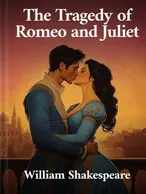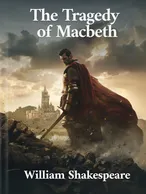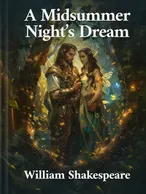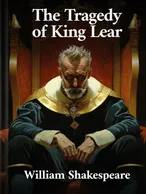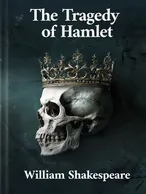Understanding Common Early Modern English Words from Shakespeare's Works
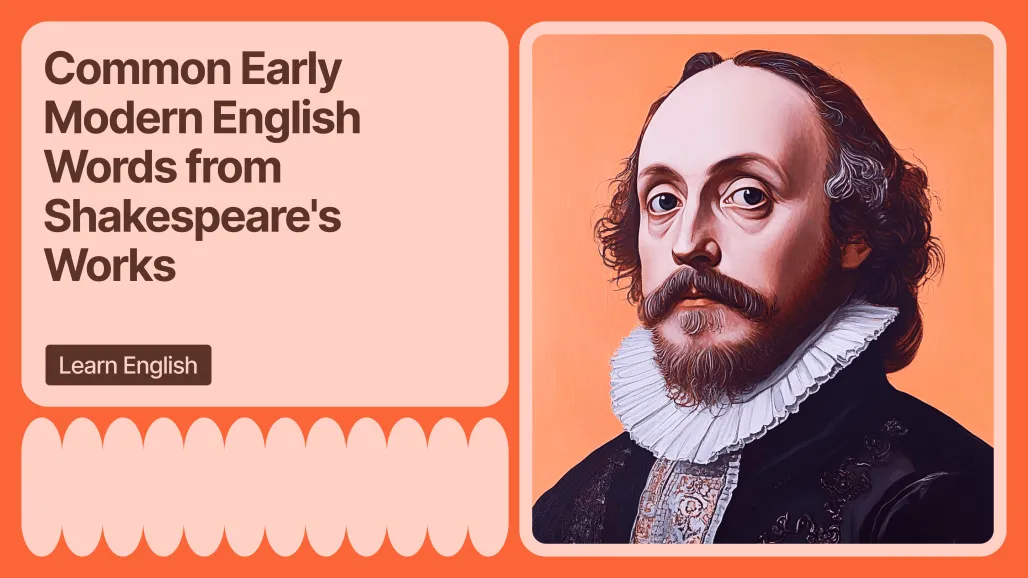
In this article, we’ll explore how understanding Early Modern English, especially in Shakespeare, deepens appreciation for classic texts, expands vocabulary, and enriches language skills.
Introduction to Early Modern English
Key Early Modern English Words and Their Modern Equivalents
Why Learn Early Modern English Words?
Introduction to Early Modern English
Early Modern English is the stage of the English language that developed between the late 15th century and the early 17th century, covering the period from about 1500 to 1700. This period marks the transition from Middle English (as seen in works like The Canterbury Tales by Chaucer) to a form of English that feels more familiar to modern readers. It was a time of rapid vocabulary expansion, influenced by the Renaissance, increased exploration, and the invention of the printing press, which helped standardize English spelling and grammar.
One of the most famous writers from this period, William Shakespeare, took full advantage of the richness and flexibility of Early Modern English. Shakespeare often coined new words, created inventive phrases, and played with language structures. Early Modern English retains peculiarities in grammar, syntax, and vocabulary that can feel poetic, mysterious, or even challenging to readers today. However, many words from this period still appear in literature and even in modern speech. Let’s explore some of these words and how Shakespeare used them.
Key Early Modern English Words and Their Modern Equivalents
Here are some common words from Early Modern English, found in Shakespeare’s works, that are still occasionally used in literature or modern speech. We’ll explore their meanings, modern equivalents, and usage examples from Shakespeare’s plays.

Thou – “You”
Derived from Old English þū, in Early Modern English, “thou” was used to address someone informally, while “you” was more formal.
When thou hast stol’n away from fairyland,
And in the shape of Corin sat all day
Playing on pipes of corn, and versing love
To amorous Phillida.

Thee – “You” (object form)
Like “thou,” “thee” comes from Old English þē, used as the objective (accusative and dative) form of “thou”, similar to how “me” is the object form of “I.” “Do unto others as you would have them do unto thee” is a traditional phrasing of the Golden Rule in Christian teaching, encouraging empathy.
Bring with thee airs from heaven or blasts from hell,
Be thy intents wicked or charitable,
Thou com’st in such a questionable shape
That I will speak to thee. I’ll call thee Hamlet,

Thy / Thine – “Your / Yours”
Stemming from Old English þīn, “thy” was used as the possessive form of “thou.” It evolved alongside “my” but lost common usage as “your” took over in both singular and plural possessive cases. “Know thyself” is a well-known proverb, originally attributed to Ancient Greek philosophy, which remains popular today as a reminder of self-awareness and wisdom.
Deny thy father and refuse thy name!
Or, if thou wilt not, be but sworn my love,
And I’ll no longer be a Capulet.

Hath – “Has”
An Early Modern English third-person singular form of “have,” derived from Old English hæfþ. As language evolved, “hath” was replaced by “has” in the 17th century.
No unchaste action or dishonour’d step,
That hath depriv’d me of your grace and favour;
But even for want of that for which I am richer,
A still soliciting eye, and such a tongue
As I am glad I have not, though not to have it
Hath lost me in your liking.

Dost / Doth – “Do / Does”
“Dost” (second-person singular) and “doth” (third-person singular) are older forms of “do” and “does” that derived from Old English dēþ. The term “doth” shows up in period dramas and occasionally in formal poetry or plays, such as Tom Stoppard’s Rosencrantz and Guildenstern Are Dead, where it evokes a classical style.
Do not omit the heavy offer of it:
It seldom visits sorrow; when it doth,
It is a comforter.

Art – “Are”
Originally from Old English eart, “Art” is the second-person singular form of “to be.” “Art” still appears in religious language, as in prayers (“Our Father, who art in heaven”) and in poetic works to maintain an old-fashioned, solemn tone.
What thou art promised: yet do I fear thy nature;
It is too full o’ the milk of human kindness
To catch the nearest way: thou wouldst be great;
Art not without ambition,

Hither – “To here”
Originating from Old English hider, meaning “to here,” it was commonly used in Middle English. It fell out of favor as “here” and “to here” replaced it in most dialects. Often used in fantasy genres to create a mystical feel, as in Dungeons & Dragons, where spellcasting descriptions might say “come hither,” evoking an enchanted atmosphere.
Seek him, bid him come hither. Tell him I have moved my lord on his behalf, and hope all will be well.

Thither – “To there”
Derived from Old English þider, “Thither” means “to that place.” Seen in historical novels or fantasy films, “thither” appears in works like The Witcher to establish a medieval setting, as characters talk about journeys in more formal, evocative language.
But in a sieve I’ll thither sail,
And, like a rat without a tail,
I’ll do, I’ll do, and I’ll do.

Whence – “From where”
Coming from Old English hwanon, meaning “from where,” “whence” was commonly used in both Early Modern and Middle English. “Whence it came” is still used in idioms to imply returning something to its origin, commonly in literature and storytelling.
No harm.
I have done nothing but in care of thee,
Of thee, my dear one, thee, my daughter, who
Art ignorant of what thou art, nought knowing
Of whence I am, nor that I am more better
Than Prospero, master of a full poor cell,
And thy no greater father.

Yon / Yonder – “That / Those” (distant)
Stemming from Old English geondor, meaning “over there, “Yon” and “yonder” mean “that” or “those” at a distance. ”Over yonder“ is a phrase often used in rural or folksy idioms to indicate a distant or unspecified place.
It is the East, and Juliet is the sun!

Pray – “Please” or “I beg”
Derived from Latin precari, “pray” originally meant to ask earnestly and was often used as a polite request, meaning “please” or “I ask you.” Seen in polite, formal language in literature and film, such as Downton Abbey, where characters use “pray tell” to inquire more politely or curiously about a matter.
Let her not hurt me. I was never curst;

Fain – “Gladly” or “Willingly”
Stemming from Old English fægen, meaning “glad” or “pleased.” By Early Modern English, it meant “gladly” or “willingly”. Occasionally used in period dramas or historical novels to convey a sense of restrained eagerness.
Well, I may chance to see you, for I would very fain speak with you.

Alas – “Unfortunately” or “Regretfully”
Derived from the Old French ha, las, expressing sorrow or regret, it has survived with little change in meaning. Though now mostly poetic or old-fashioned, it remains in use to express pity or grief.

Mark – “Observe” or “Notice”
Originating from Old English mearcian, meaning “to observe” or “notice. ”Though “mark” is still used today, its imperative use to mean “pay attention” has become more rare. “Mark my words” is a widely used phrase meaning “pay attention to what I say, as it will be important later.”
But mark, poor knight,
What dreadful dole is here!
Eyes, do you see?
How can it be?
O dainty duck! O dear!

Betwixt – “Between”
From Old English betweox, meaning “between.” “Betwixt” was common in Early Modern English but has since been largely replaced by “between” in standard usage. Appears in gothic and fantasy literature to create an eerie or mysterious tone.
What watchful cares do interpose themselves
Betwixt your eyes and night?

Anon – “Soon” or “Shortly”
Derived from Old English on ān, meaning “in one (moment).” “I’ll be with you anon” means “I’ll join you soon” or “shortly,” though it is now mostly seen in historical contexts.
Thou dost me yet but little hurt; thou wilt anon, I know it by thy
trembling: now Prosper works upon thee.

Ere – “Before”
Coming from Old English ǣr, meaning “before.” “Ere” was commonly used in Early Modern English and can still be found in poetry or literary works as an alternative to “before.” “Ere” appears in J.R.R.Tolkien’s The Lord of the Rings, often in poetic or elevated language. For example: “Ere iron was found or tree was hewn When young was mountain under moon; Ere ring was made, or wrought was woe, It walked the forests long ago.”
I’ll call upon you ere you go to bed,
And tell you what I know.

Woe – “Sadness” or “Sorrow”
Stemming from Old English wā, meaning “distress” or “grief.” “Woe” often appears in modern culture, especially in works inspired by Gothic literature, like those of Edgar Allan Poe.
Most lamentable day, most woful day
That ever ever I did yet behold!

Why Learn Early Modern English Words?
Learning Early Modern English words isn’t just for historians or literature enthusiasts—it can also enhance your comprehension and communication skills in practical ways. These words frequently appear in classic literature, poetry, and even contemporary media that references or mimics the style of Shakespeare or the King James Bible. Recognizing and understanding Early Modern English vocabulary can deepen your appreciation for classic works, helping you engage with the texts on a more meaningful level.
Moreover, these words offer insight into the roots and evolution of modern English, revealing how certain words and grammatical structures developed. This knowledge can enrich your vocabulary and introduce you to synonyms or phrases that add variety to your language use. For English learners, studying Early Modern English words can improve overall fluency, build cultural knowledge, and expand one’s understanding of English's expressive range, making speech and writing more nuanced. Finally, understanding Early Modern English is beneficial in fields like literature, history, and theater, where these words often appear in analysis, performance, or academic discussion.
WholeReader provides access to plays like Romeo and Juliet and other Shakespearean works, where you can immerse yourself in Early Modern English vocabulary in context, building fluency in a dynamic, engaging way.
